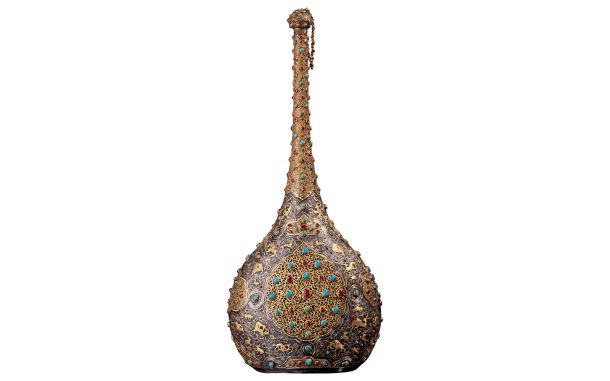Ghurbah: A Pillar of Ethical Strength in Turbulent Times
In This Article
-
Fethullah Gülen's Hizmet movement emphasized education as a core service, establishing thousands of schools globally over the past half-century.
-
Despite physical separation, Hizmet members find solace in their faith in Divine Destiny, enduring alienation with patience.
Fethullah Gülen, a renowned Turkish scholar, went into self-imposed exile due to escalating tensions in Turkey. Since 1999, he has resided in the United States, unable to return to his homeland until October 20, 2024 when he embarked on his last journey to his Creator. Despite his prolonged separation, Gülen continued to embody a life of simplicity and frugality, passing away without personal possessions. His extraordinary example of physical and spiritual estrangement, or ghurbah, has inspired countless Turkish educators worldwide, who similarly face exile and separation from their homeland.
Fethullah Gülen's Hizmet movement emphasized education as a core service, establishing thousands of schools globally over the past half-century. Turkish teachers embarked on a journey of hijrah (migration), leaving their comforts behind, mirroring a self-imposed exile. This voluntary migration allowed them to spread knowledge; but the 2016 Turkish coup d'état dramatically altered their circumstances. Many Hizmet-affiliated individuals were forced into exile, fleeing persecution. This involuntary hijrah transformed their experience, making them strangers (ghuraba’) in this world.
The concept of ghurbah (exile/estrangement) signifies physical and spiritual separation from one's homeland, family and God. Prophet Muhammad (peace be upon him) said, "Be in this world as though you are a stranger (gharīb)." This spiritual estrangement reminds us of our temporary presence in this world; our feeling of alienation, and longingness to return to God.
The Qur’an reminds believers: "And We will surely test you with something of fear and hunger and a loss of wealth and lives and fruits, but give good tidings to the patient" (Qur'an 2:155). Hizmet members exemplified this patience amidst separation from their family and homeland; forced into a state of ghurbah. Despite physical separation, Hizmet members find solace in their faith in Divine Destiny, enduring alienation with patience. Ghurbah becomes spiritually transformative, embracing ethical, psychological and spiritual dimensions. Ethically, they cultivate resilience, moral courage and compassion; psychologically, they cope with isolation, nostalgia and disconnection; and spiritually, they long for reunion with God, echoing Rumi's reed metaphor.
In the context of hijrah, Turkish teachers experience ghurbah as a deep sense of estrangement, adapting to foreign cultures, languages, and environments. But now that they are forced into exile, their sense of isolation and alienation have intensified, making their continued service a remarkable display of commitment and perseverance.
Ghurbah is connected with hijrah (migration). Prophet Muhammad's (peace be upon him) journey from Mecca to Medina inspires Turkish teachers to undertake migrations. Exile intensifies their feelings of isolation, yet they continue serving, demonstrating commitment and perseverance in the footsteps of their Hocaefendi. Through this lens, the movement's concept of ghurbah, originally denoted the selfless sacrifices of teachers leaving their homeland to educate others globally, but since their forced displacement, ghurbah has taken on a deeper psycho-spiritual significance. In turbulent times, ghurbah emerges as a pillar of ethical strength, guiding individuals toward spiritual growth. Through Hizmet's lens, we witness the transformative power of embracing estrangement, cultivating inner strength and upholding compassion, justice and wisdom.









